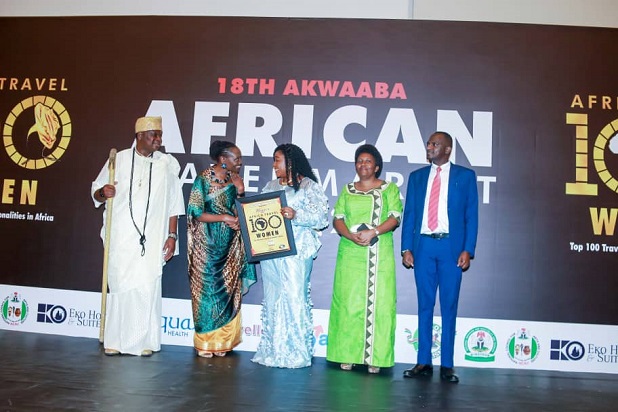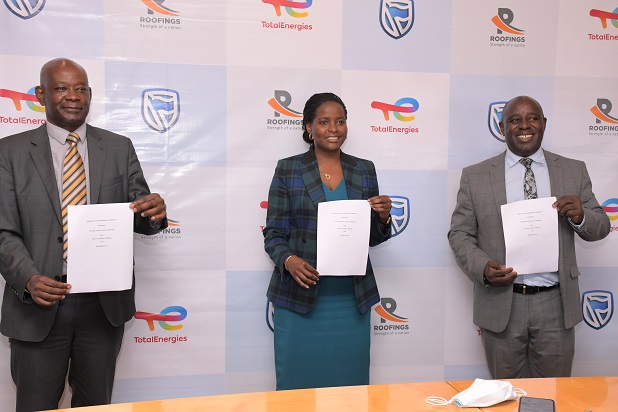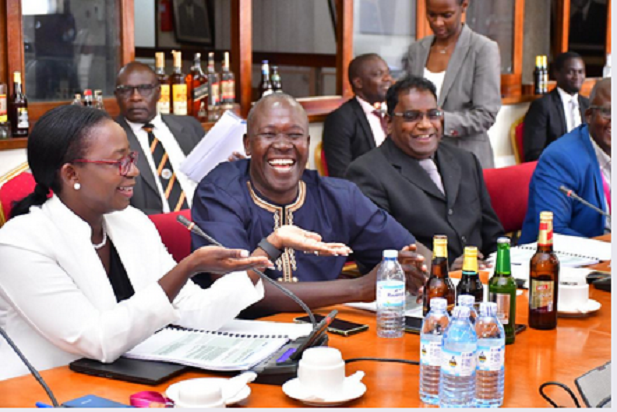Greater Kampala Metropolitan Areas may soon get relief from the dust, potholes and floods that they have been enduring for decades. This is after Parliament authorized Government to borrow Shs2.2Trn for road construction projects.
This followed a motion by Ministry of Finance, Planning and Economic Development seeking Parliament’s approval to borrow up to US$518 Million (Shs1.915Trn) from the World Bank Group and receive a grant of US$48 Million (Shs177.502Bn) from the World Bank Group and also borrow up to Euro 40 Million (Shs159.712Bn) from Agence Francaise De Development (AFD) to finance the Greater Kampala Metropolitan Area Urban Development Program (GKMA-UDP).
In defending the loan, Government argued that the Greater Kampala Metropolitan Area (GKMA) comprises; Kampala city and 8 Metropolitan Local Government entities namely; Entebbe, Kira, Makindye-Ssebagabo, Mukono and Nansana Municipalities as well as; Mukono, Mpigi and Wakiso Districts LGs and this accounts for 14% of the national population projected at 5.8 million, 40% of the urban population, 46% of formal sector workers and 70% of manufacturing firms with five or more employees which means that Uganda’s vision of upper middle-income status by 2040 will largely depend on the GKMA’s transformation as a productive, resilient, and livable city.
While presenting the report before Parliament, Robert Migadde, Vice Chairperson of National Economy Committee however revealed that this dream may be hampered by the acute infrastructure gaps, citing the case of Kampala city, where out of a total roads network of 2,100 km, only about 300km (about 14.3 percent) are paved and in good condition and this is further hampered by the floods that present a critical hazard and have the biggest potential for impact on human life and disruption of economic activity.
Kampala Capital City Authority (KCCA) informed Parliament that the annual average damage to buildings is US$49.6 million and more than 170,000 people are frequently affected by floods, yet more than 10% of all jobs and main roads in Kampala lie in flood-prone areas which has greatly attributed to poor drainage system in these areas, which is likely to worsen if drainage challenges are not addressed.
The Authority cited a 2012 Survey by KCCA that found that, 24,000 man-hours are lost daily in traffic jam and an estimated loss of about US$800M per annum and this is worsened by the lack of widespread reliable transport and large number of un-regulated providers with uncoordinated routes and frequent stops has affected businesses in the GKMA.
Migadde said, “It’s currently estimated that the daily cost of congestion in GKMA is equivalent to US$1.5 million. Also, it is estimated that the annual damages in terms of loss of property and lives was between US$ 1.3 – US$7.3 million in 20 13 and this could rise to a range of US$3.7 and US$17.6 million by 2025 due to flooding.”
According to Government, the loan will go towards roads rehabilitation and upgrading accounting for US$460.66M as well as works on drainage channels worth US$50 Million and this will entail; upgrading/rehabilitation existing roads within existing rights of way, street improvements to meet the needs of all users (pedestrians and cycles lanes) and converting roundabouts to Signalized junctions (traffic lights)
The drainage works will focus on Solid Waste Management (SWM) through the promotion of waste segregation /sorting and characterization to promote recycling and reduce waste as well as community sensitization campaigns on improved SWM and climate risks. Rehabilitation of storm water drainages. Development of green parks/belts and tree planting along roadsides
The scope of work will also have a component on job creation through the provision of Microenterprise and this project will focus on Markets and artisan parks worth US$50 Million, while institutional strengthening for Ministry of Kampala Capital City Authority will account for US$18M and institutional strengthening for Local Governments will cost US$30M.
However, the lenders have warned Government not to extend the project to high-risk activities like; widening of existing roads that would require compensation and displacement of people where KCCA and the 8 metropolitan LGs cannot afford to pay the affected persons or mitigate the associated risks.
The project as per World Bank Investments will not involve investment for private use like; private markets, private workspaces, and private car/taxi parks and purchase of Vehicles, establishment of new office buildings.
Although Parliament approved the loan, MPs cautioned Government on the limited progress made by 8Authorities towards having in place all detailed designs, right of way fully acquired, PAPs fully compensated and relocated, in order to make them available for handover to contractors.
The loan from World Bank worth US$ 518 million has a Maturity period of 38 years and the grace period 6 years, while the French loan worth EURO 40 million comes with payment period of 25 years and a grace period of 7 years.





